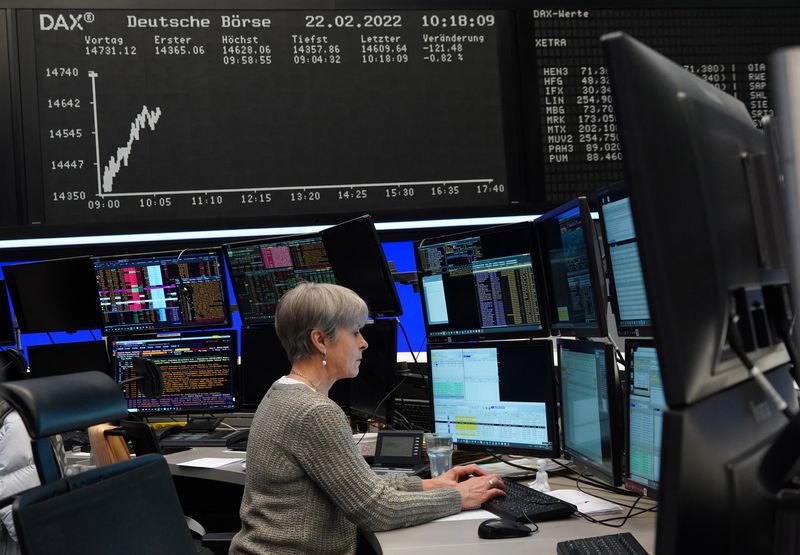By Peter Nurse
Investing.com - European stock markets are expected to trade in a subdued fashion Wednesday, as investors balance out regional recessionary concerns with reopening in China.
At 02:00 ET (07:00 GMT), the DAX futures contract in Germany traded 0.1% lower, CAC 40 futures in France climbed 0.1%, while the FTSE 100 futures contract in the U.K. fell 0.1%.
Chinese authorities announced earlier Wednesday that a range of COVID restrictions had been eased, including allowing some people to quarantine at home and ending test requirements to enter most public venues.
These moves follow civil unrest over the strict nature of the country’s mobility curbs to stem another outbreak of infections.
China’s economic growth has been stunted this year by these tight restrictions, and the relaxation is likely to fire up the second largest economy in the world, and a major export market for European companies.
However, European investors are currently having to cope with anemic growth and tightening monetary policy to cope with stubbornly high inflation.
The European Central Bank is expected to increase interest rates again next week, even if they are now "very near" their neutral level, according to ECB policymaker Constantinos Herodotou on Tuesday.
Analysts at Goldman Sachs see European stocks having a difficult start to 2023, falling in the first half before recovering in the second, after the strong rally to end this year.
“We expect 2023 to prove tougher after the resilience in earnings this year,” said Goldman analysts, citing margin pressure due to higher costs that will be harder to pass on in a recession.
German industrial production fell 0.1% on the month in October, data released Wednesday showed, better than expected but still illustrative of the difficulties the region’s economic powerhouse is suffering from.
Eurozone GDP is expected to show an economy that barely grew in the third quarter, climbing 0.2% on the quarter, while employment numbers are also due.
Crude oil prices stabilized Wednesday, helped by continued optimism of improved Chinese demand as the largest importer of crude in the world reported fewer new COVID-19 infections for two consecutive days and also eased a range of COVID restrictions.
The American Petroleum Institute, an industry body, estimated a drawdown in U.S. crude stockpiles of around 6.4 million barrels last week, according to data released Tuesday, suggesting demand remained strong in the world’s largest consumer.
The official numbers from the Energy Information Administration are due later Wednesday.
However, trading has been volatile as the ramifications of the EU import ban and Group of Seven's $60-a-barrel price cap on seaborne Russian oil remain unclear.
By 02:00 ET, U.S. crude futures traded 0.2% lower at $74.13 a barrel, while the Brent contract traded 0.1% higher at $79.40, falling below $80 for the second time in 2022 during the previous trading session.
Additionally, gold futures rose 0.2% to $1,785.05/oz, while EUR/USD traded 0.1% lower at 1.0457.
